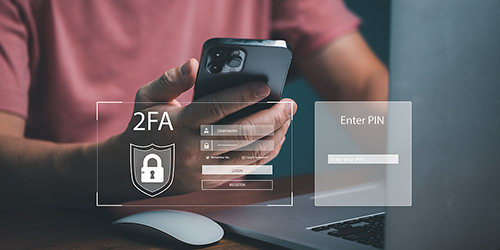
In the ever-evolving digital landscape, the importance of robust security measures cannot be overstated. As cybercriminals grow more sophisticated in their tactics, it’s crucial that individuals and businesses take every possible precaution to protect their sensitive information. One essential security feature that is no longer an option but a necessity is two-factor authentication (2FA). This article delves into the reasons why 2FA is vital for maintaining the security of your online accounts and safeguarding your digital assets.
What is Two-Factor Authentication?
Two-factor authentication is a security protocol that requires users to provide two separate forms of identification when accessing their accounts or services. The first factor is usually something the user knows, such as a password or PIN, while the second factor is typically something the user possesses or is a biometric identifier. This second factor can include a physical token (e.g., a security key or card), a one-time code sent via SMS or an authenticator app, or a biometric identifier like a fingerprint or facial recognition.
Why Two-Factor Authentication is Essential
- Stronger Defense Against Cyberattacks
The primary reason to implement two-factor authentication is to enhance the security of your online accounts. By requiring an additional layer of verification, 2FA makes it significantly more difficult for cybercriminals to gain unauthorized access to your accounts, even if they manage to obtain your password. This added security measure can effectively deter hackers, who often target accounts with weaker security protocols.
- Protection Against Phishing and Social Engineering Attacks
Phishing and social engineering attacks are common tactics employed by cybercriminals to trick individuals into revealing their sensitive information. By incorporating 2FA, you can dramatically reduce the risk of falling victim to these schemes. Since an attacker would need to compromise both your password and the second authentication factor, the likelihood of a successful attack is greatly diminished.
- Improved Compliance with Industry Regulations
For businesses, implementing two-factor authentication can be crucial in ensuring compliance with industry regulations and standards, such as GDPR, HIPAA, and PCI-DSS. These regulations often require organizations to implement robust security measures to protect sensitive data. By adopting 2FA, businesses can demonstrate their commitment to data security and minimize the risk of costly penalties and reputational damage due to data breaches.
- Enhanced Trust and Confidence
Users are becoming increasingly aware of the importance of digital security, and they expect organizations to take the necessary steps to protect their sensitive information. By implementing two-factor authentication, you can demonstrate your commitment to safeguarding your customers’ data and build trust with your users. This can lead to increased customer loyalty, higher user satisfaction, and improved business reputation.
- Minimization of Password-Related Risks
Relying solely on passwords to secure your accounts is inherently risky, as passwords can be easily forgotten, guessed, or stolen. Two-factor authentication mitigates these risks by requiring an additional form of identification, ensuring that even if your password is compromised, your account remains secure.
Conclusion
In today’s digital age, ensuring the security of your online accounts and sensitive information is more important than ever. Two-factor authentication offers a reliable and robust solution to protect your digital assets and reduce the risk of cyberattacks. By implementing 2FA, you can strengthen your account security, foster trust with your users, and comply with industry regulations. Don’t wait for a security breach to happen; proactively safeguard your digital assets and ensure your online safety with two-factor authentication.



